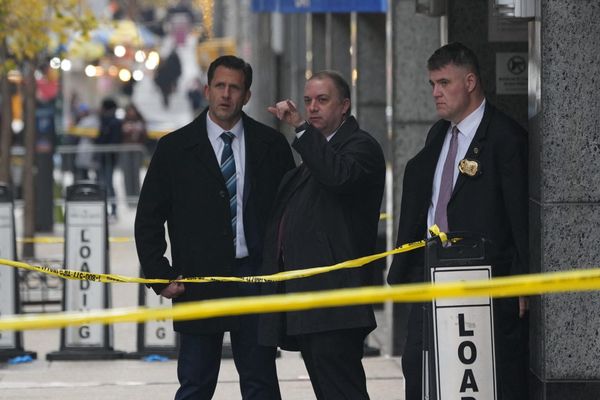
Republicans in nearly half of state legislatures have proposed bills to require documentary proof of citizenship to vote.
Conservatives in California are pushing for a voter ID ballot measure that would require citizenship verification to register to vote and photo identification to get a ballot.
A Republican lawmaker in Pennsylvania filed a bill to create a voter ID in the swing state, praising voters in Wisconsin that voted to approve a new ID law in the midwestern battleground state.
Donald Trump won both the electoral college and the popular vote last year, but his win has not stopped the ongoing Republican quest to restrict access to elections. In fact, Republicans in state legislatures across the country have been emboldened by the president’s calls to secure US elections, even with no evidence that voter fraud is a legitimate problem. They have filed bills under the pretense of election integrity, including stricter voter ID provisions, documentary proof of citizenship requirements, hurdles for citizens’ ballot measures, restrictions on voter eligibility and the mail voting process, and pre-emptions that would make ranked choice voting illegal.
These bills could become law before the 2026 midterms, which could aid Republicans by making it more difficult for certain groups of people to vote. Even if they do not pass, they will become more fuel for stolen election narratives and for people who claim US elections are not secure.
According to the Voting Rights Lab, which tracks state level bills, 404 bills have been filed across the US to restrict voter access or election administration this term.
“Ultimately, they’re predicated on false claims about who is voting in our elections, and they stand to harm a lot of eligible American citizens who want to be able to vote, and millions and millions of whom have been voting in our elections legally in recent years,” said Andrew Garber, counsel in the voting rights program for the Brennan Center.
The state-level moves come as the US House has approved a far-reaching bill, dubbed the Save Act, that would require voters to submit proof they are US citizens when registering to vote and would limit registration by mail or online, hindering voter registration efforts. Trump also issued an executive order calling for documentary proof of citizenship. These restrictions are based on the false narrative that noncitizens are voting en masse in US elections, a common theme pushed by Trump and his allies during the 2024 election.
Several states have approved laws requiring documentary proof of citizenship, including New Hampshire and Louisiana, and others, like Texas, are considering similar bills. New Hampshire held its first elections this year since adopting the new requirements and some people were not able to register, Votebeat reported. Among those were some voters whose current names didn’t match their birth certificate, which would apply to people who have changed their name.
A Brennan Center report from January analyzed the previous year of restrictive voting laws, finding that at least 10 states enacted 19 voting restriction laws in total throughout 2024. Of those 19 restrictive laws, eight were in Louisiana. In addition to the documentary proof of citizenship law, the state passed laws that would limit assistance for people who need help with their ballots and increased the ways absentee ballots could be rejected.
In Alabama, the state expanded the list of crimes that would lead people to lose their voting rights. Several states limited who can assist voters with their ballots. Multiple also limited the mail voting process, either through shortening the periods that voters can fix issues with their mail ballots or the deadlines by which people can request absentee ballots. Some now will require purges of voter rolls that could risk ousting eligible voters, a process that a few states tried ahead of the 2024 election, netting naturalized citizens and others who should not have been flagged for removal.
“A lot of this goes back to a goal we’ve been seeing for several years now, really trying to undermine confidence in elections, really trying to use smoke and mirrors to create the perception there are problems,” Garber said.
A few states have made it more difficult for citizens to ask voters to approve ballot measures, hindering the direct democracy process. In Arkansas, several bills signed into law this year by Governor Sarah Huckabee Sanders attack the initiative process. Republican lawmakers in South Dakota have also pushed to limit the initiative process.
Perhaps the most extreme example of a state-level attack on voting is not coming from a state legislature, but from a judge who lost his election in North Carolina. Jefferson Griffin has sought to overturn his loss to Allison Riggs by challenging tens of thousands of voters’ eligibility in a closely watched case. The state appellate court sided with Griffin in a recent ruling, requiring voters to prove their eligibility, but the ruling is on hold while the state supreme court considers it.
“I worry that this is honing a playbook to be used in the future, that people in power hold on to power by selectively challenging election outcomes that they don’t like,” Riggs told the Guardian.







